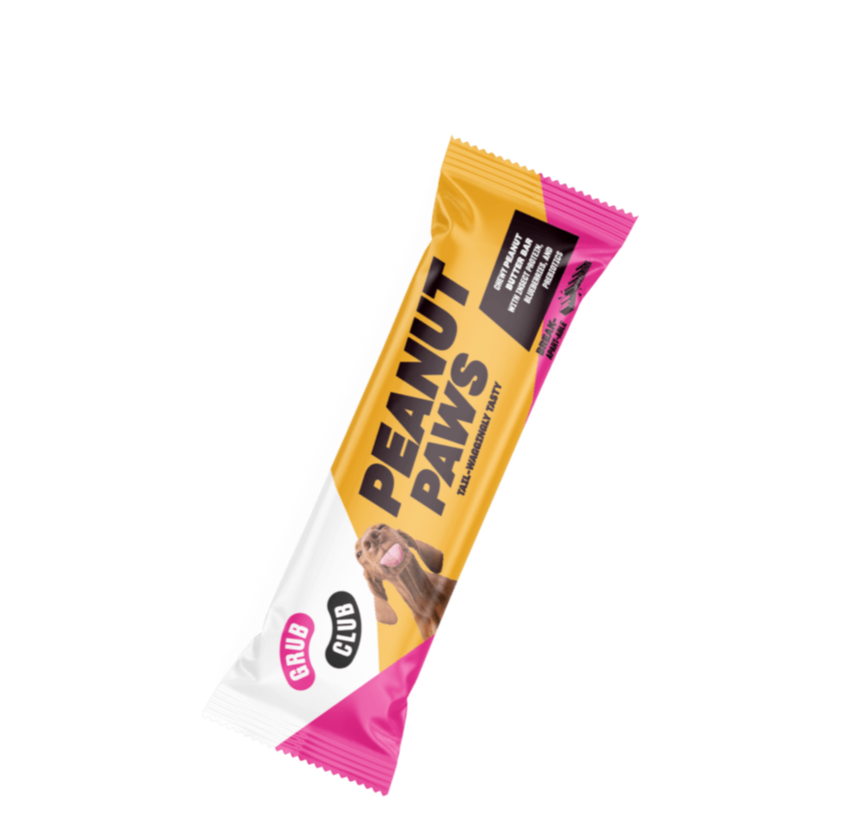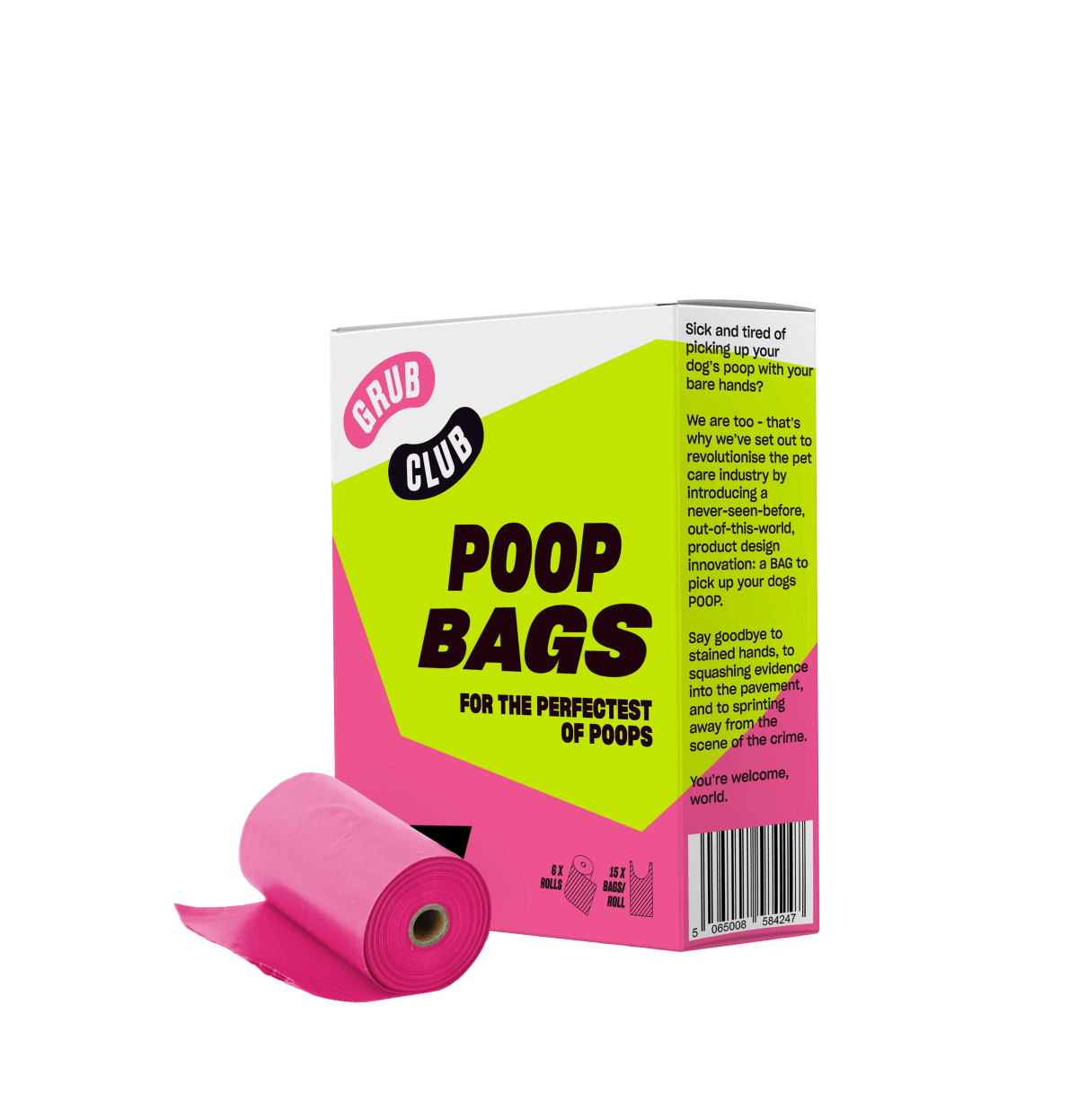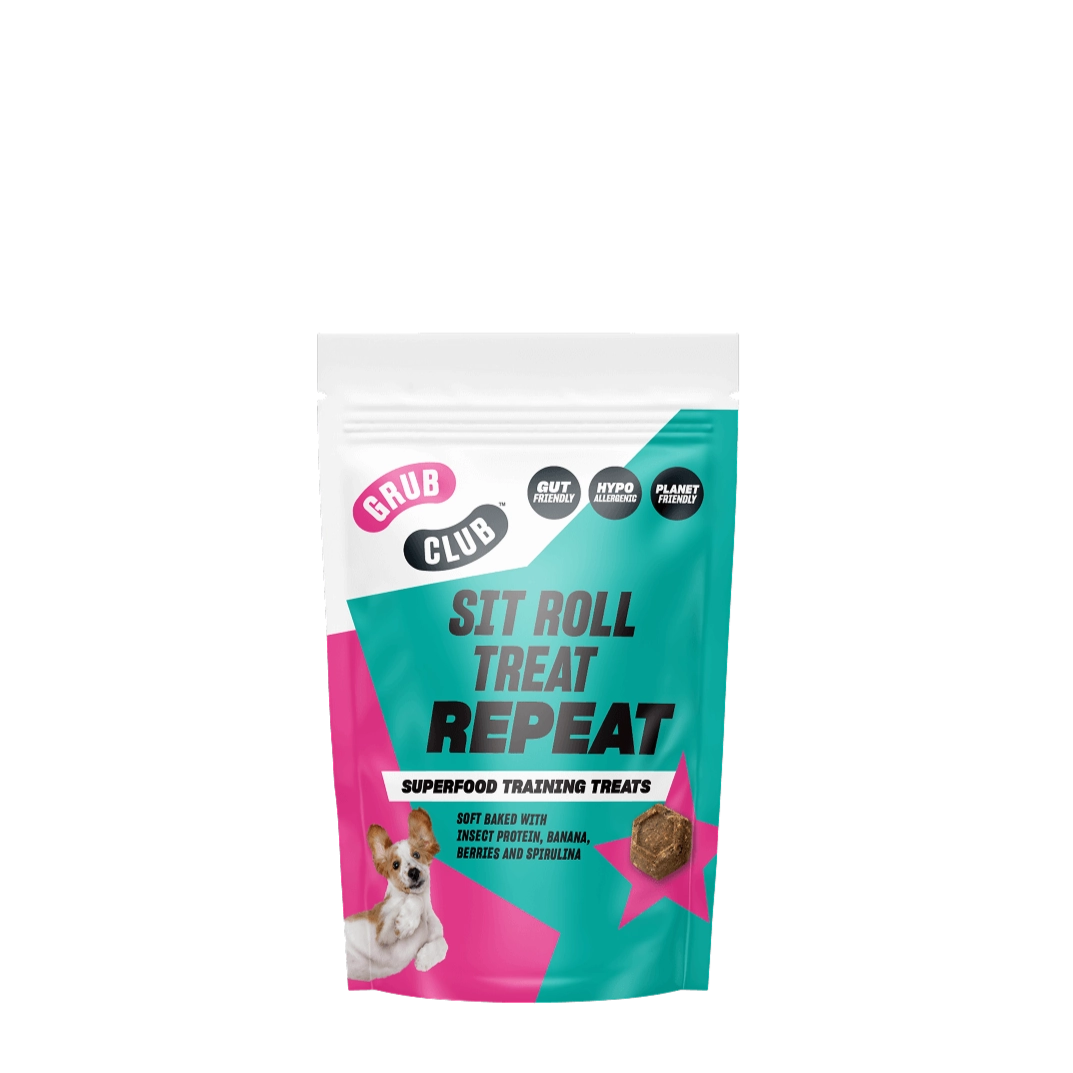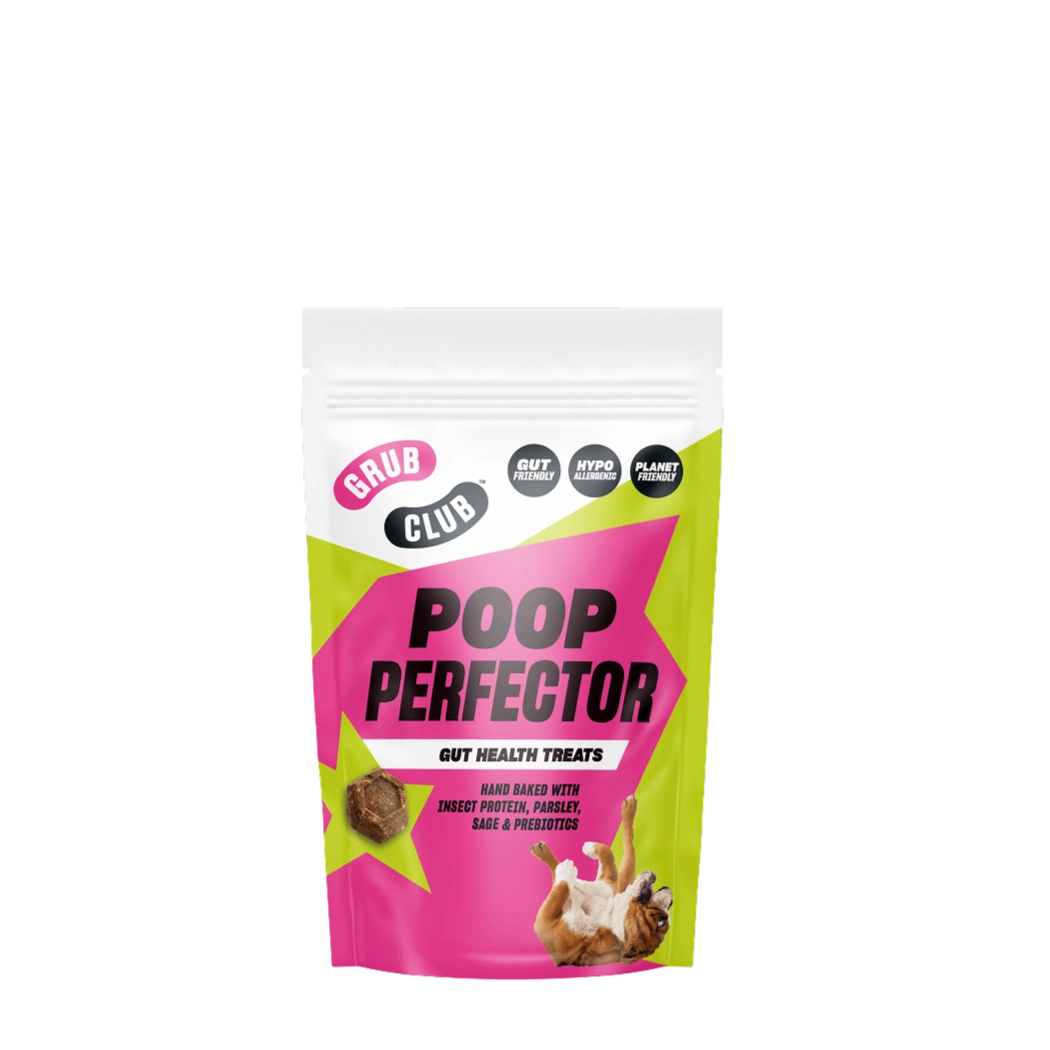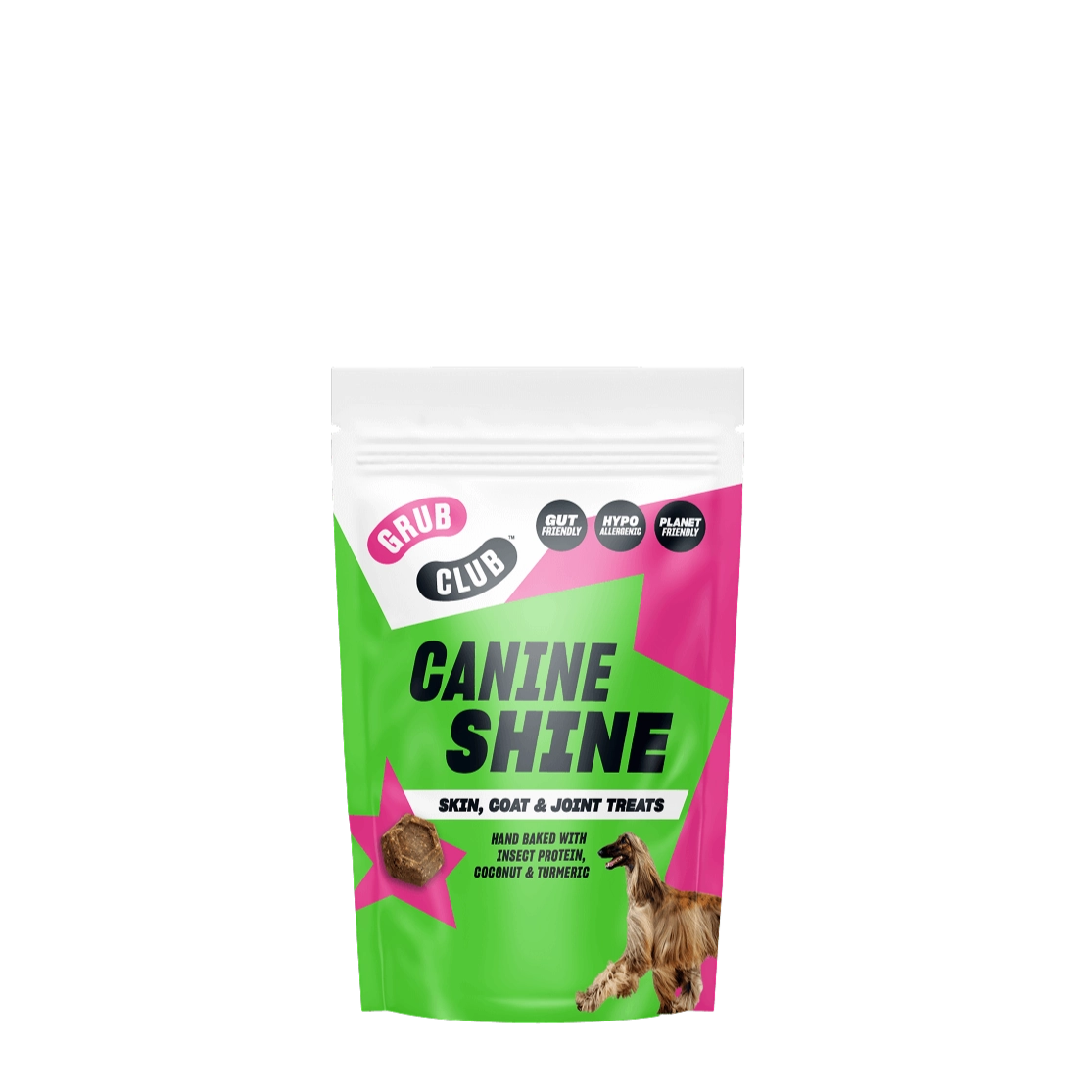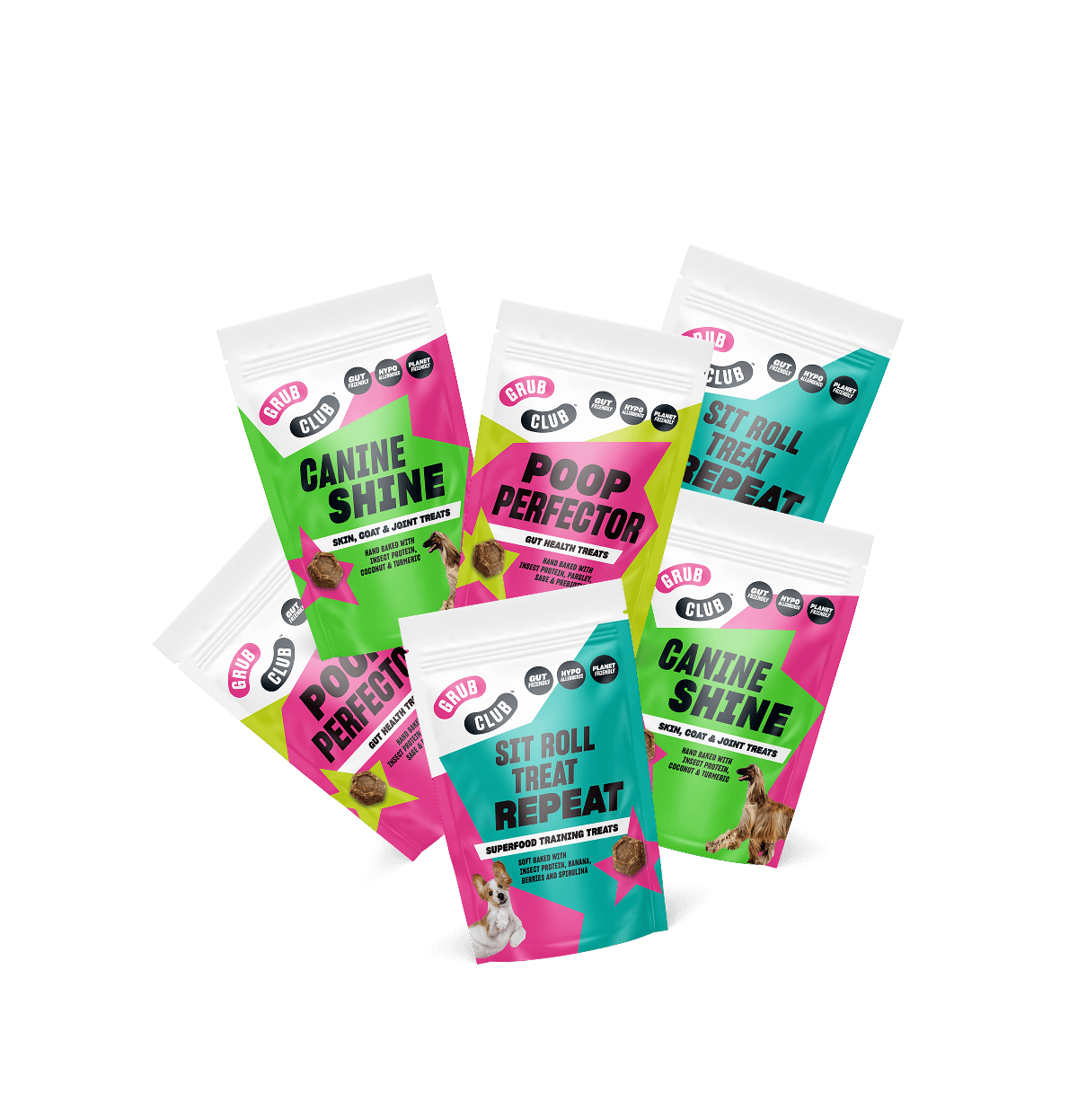Top Dog: All-In-One
Supplement for Snout-to-Tail Wellness
60 Scoops
FREE UK Delivery on orders above £49.
You have £0.00 in your cart, spend £49.00 more and get free shipping.
60 Scoops
1 Bar
72 Bags
1 Pack
1 Pack
1 Pack
Or continue without a name
CheckoutGrub Clubbers assemble! We're busting the kibble-related myths and sharing some of the best kept secrets behind the dog food industry. Get ready to have your eyes opened.
Dogs are more than capable of surviving (and thriving) without any traditional meat at all.
When shopping around for dog food, look for the term ‘nutritionally complete’. This means the food contains the right balance of the six basic nutrients your dog needs to lead a healthy life. These core nutrients include water, proteins, fats, carbohydrates, minerals, and vitamins.
We worked with vets and animal nutritionists to create the magic formula for our All-Day Buffet - which (surprise, surprise) is nutritionally complete.

Three words: In. Our. Dreams. It’s called supply and demand guys.
We’re not afraid to admit insect protein is a fairly new concept in the UK (although people have been eating bugs in other parts of the world for yonks).
What does that mean for us? Well, there aren’t many facilities out there doing this kinda thing and the demand is low therefore it’s pretty expensive to make. It would be much cheaper for us to do a meat-based dog food - but that’s not in our planet-friendly, hypoallergenic nature.

Sure, raw feeding might work for some dogs. But did you know that three of the top seven allergens found in dog food are beef, chicken, lamb?
Insect protein is naturally hypoallergenic for dogs and there are many dogs out there that can’t eat meat, so raw feeding isn’t always the answer. Plus it can carry the risk of malnutrition and spread of bacteria.

Just like human food, some dog food is far better than others. Remember that term ‘nutritionally complete’?
As long as the label on the kibble says the food meets or exceeds the PFMA’s standards for a complete and balanced diet for your dog, you have nothing to worry about. Lab analysis is performed after the cooking process to ensure accurate nutritional information.
What’s far more important than the cooking method, is the ingredients used to make your dog’s food.

No, we don’t pay vets to recommend our food. And if you think your vet would suggest switching your dog’s food so they can have a little pocket money and not because it’s a good option for your dog, then it’s time for you to find a new vet.

